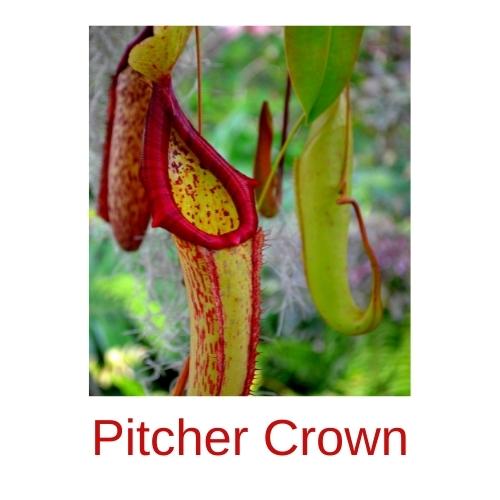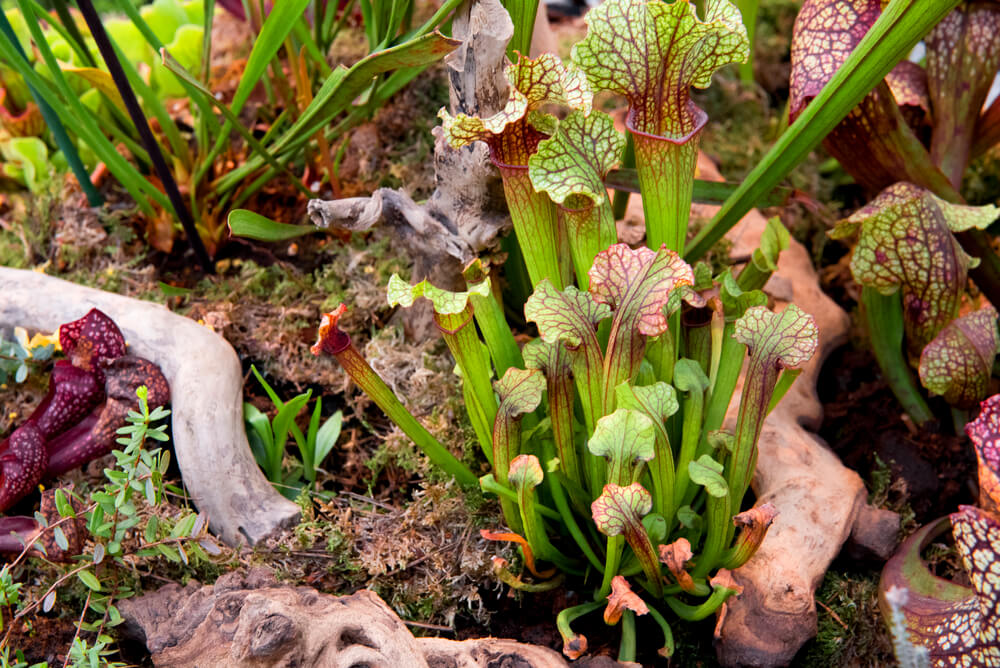If you’re like most people, you probably think that pitcher plants only grow in tropical environments. But did you know that some species of pitcher plants can thrive in temperate climates?
One of the most common questions we get here at the nursery is whether or not pitcher plants can use tap water. The short answer is yes! Pitcher plants are very adaptable and can use a variety of water sources, including tap water.
However, there are a few things to keep in mind if you’re going to use tap water for your pitcher plants. Read on to learn more about using tap water for your pitchers!
What Water Do You Use for Pitcher Plants?
When caring for a pitcher plant, one of the most critical elements is the type of water to use. The best kind of water for pitcher plants is rainwater or filtered tap water, as this provides pitcher plants with the ideal mix of minerals and alkalinity they need to thrive.
Neither distilled nor reverse osmosis water should be used, as these lack essential minerals and can lead to deficiencies in the plant. Additionally, it’s best to avoid using well water as its mineral content can fluctuate widely over time, which can cause health problems for your pitcher plant.
Taking the time to select an appropriate type of water for your pitcher plant is key to its growth and development.
How Do You Make Tap Water Safe for Pitcher Plants?
When it comes to making tap water safe for pitcher plants, the most important step is making sure it has been treated to remove any chlorine or metals that can build up in the soil and harm the delicate growth within its carnivorous form.
Through a standard filtration process or activated carbon water filter, you can make sure all harmful pollutants are removed through a simple process that also adds helpful minerals back into the mix.
You should also check for a wide range of durable scale particles such as sand and gravel, which may be caught together with plant debris such as decaying leaves and broken shoots.
With a simple combination of these steps, you can provide your pitcher plants with the safest possible drinking environment.
How Long Does It Take for Bacteria To Grow in Tap Water?
Surprisingly, given favorable environmental conditions, bacteria can grow in tap water within a matter of several hours. It only takes between 1 and 24 hours for bacteria populations to begin increasing in tap water.
Different types of bacteria are found in tap water and different types can multiply differently, making it difficult to establish a definitive answer as to how long it takes for all kinds of bacteria to develop.
However, what is certain is that even under ideal conditions bacterial growth will be significant and rapid once it begins.
Therefore, it’s important to think about the kind of environment your tap water might be reaching so you can monitor any potential subsequent growths should you wish not to drink any water containing bacteria.
Is Boiled Water the Same As Distilled Water?
Boiled water and distilled water may appear the same, but they have very different properties. Boiling water involves raising the temperature of the water so that it begins to vaporize, leaving dissolved minerals and other impurities behind in its solid state.
This process helps kill bacteria and other organisms in contaminated water, as well as remove any unpleasant odors. Distillation on the other hand removes all solids, minerals, and contaminants from the water entirely.
It involves heating a liquid until it forms a vapor which is then condensed back into liquid form, resulting in purer and cleaner water than what is achieved through boiling.
Therefore, while boiled water serves more like a disinfectant rather than a purifying agent, distilled water can be relied upon to provide pure H2O free from any contaminants or particles.
Conclusion
So, can pitcher plants use tap water? The answer is yes, but it’s not ideal. Pitcher plants are best suited for distilled or rain water because those options do not contain chemicals that can harm the plant.
If you only have access to tap water, make sure you let it sit out for 24 hours so that the chlorine has a chance to evaporate before using it on your plant.








